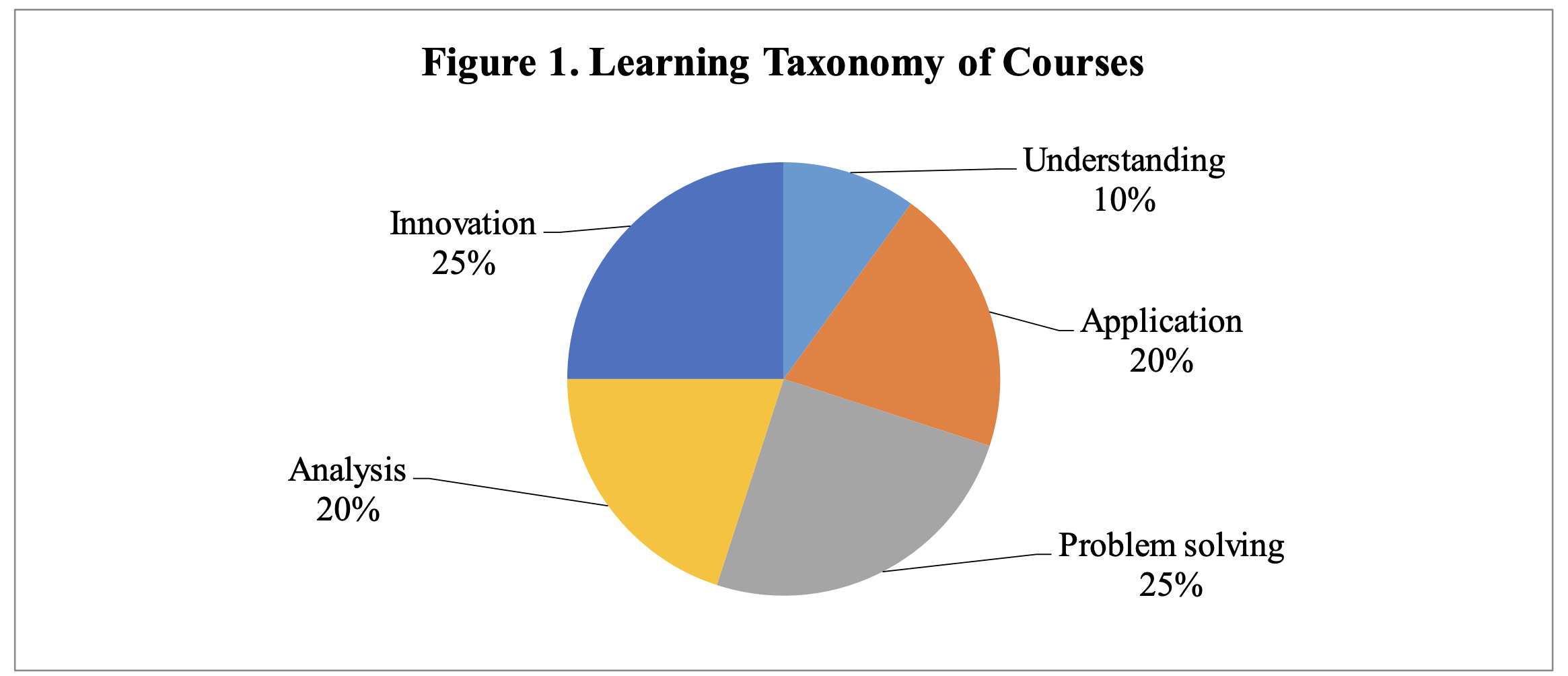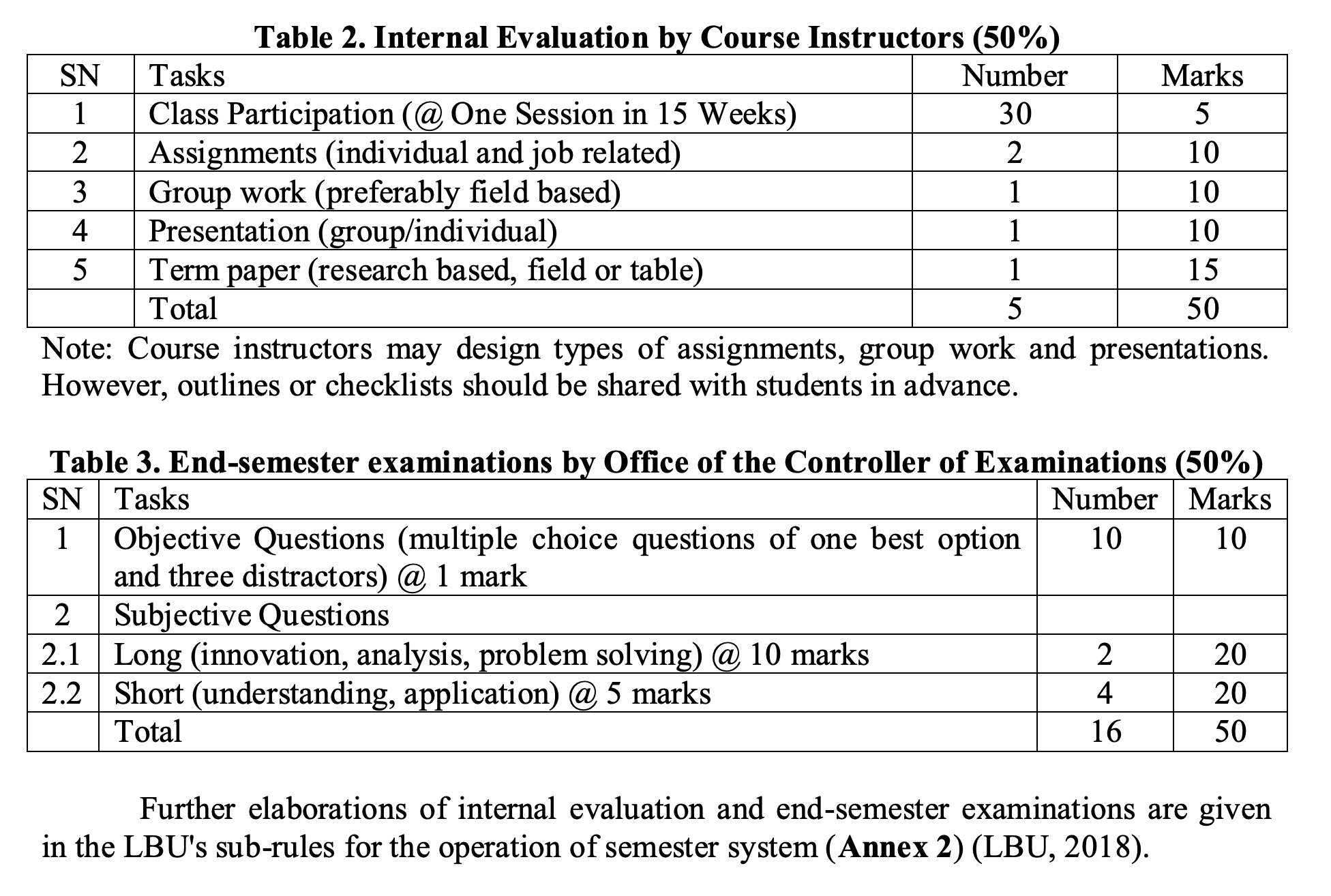The Master in Development Studies (MDS) focus on sustainable development in line with the Buddhist concepts of Sheela sampanna sangha and shared prosperity with maitri (amity), karuna (compassion) and mudita (joy).
An objective of the program is to prepare the learner (student) equipped with knowledge, skill, and attitude for independently conceptualizing, planning, implementing, and evaluating the respective fields of developmen projects through integration of the Buddhist philosophy and the contemporary applied sciences along with innovative ideas for bringing positive changes in the livelihood of the people.
The learners who would successfully complete the MDS program would be competitively instrumental in the respective organizations at the government, nongovernment or community from the grass-root through the policy-making levels.
The course objectives will be formulated on the basis of the learning domains and taxonomy as well as classifications of the Buddhist pedagogy (Figure 1).

There are three practical courses that expose the students to real-life situations while studying the program.
As outlined in the LBU’s Sub-rules of Operating Semester System, the pedagogy will be interactive and participatory along with students’ presentations, case studies, etc. The course instructors may also develop their tailor-made approaches as suitable for their respective courses or topics (LBU, 2018).
| Program Name | Call For Admission | Admission Deadline | Class Starts | Semester End Exam |
|---|---|---|---|---|
| MDS | Oct 1 | Jan 2 | Jan 15 | May Last Week and Dec Last Week |

Admission Criteria:
Students from any discipline having passed a Bachelor’s Degree or its equivalent from any recognized university are eligible to apply for admission to a Master’s degree program. Eligible candidates may apply to LBU by filling out an online application form available online. Admission to the program will take place on a Semester basis. To be eligible for the program, the candidate needs to appear for a written entrance examination followed by an interview. The maximum number of candidates is set to 35 students per class.
Sitalnagar, Devdaha, Rupandehi, Nepal
Mr. Ukesh Raj Bhuju (Dean)
071-577427
The courses have been designed to be field-oriented, and evaluation of learners’ performance and achievements will be based on 100 marks segregated into 50 each in internal evaluation and end-semester examinations.

In addition to the courses offered in the MScAF program, a student may opt for additional courses that are offered in LBU’s other master programs. Upon the approval of a supervising professor, a student may extend the timeframe for completing those course(s) by up to two additional semesters.
a) Students’ performance evaluation will be carried out continuously. The evaluation will be primarily based on internal assessments and end-semester examinations.
b) In general, each course evaluation will be on the 40% internal assessment and 60% end-semester examinations. However, in the case of practical subjects, evaluation system will be decided by the subject committees.
c) Students have to pass both internal assessment and end-semester examinations. The minimum scores required for passing internal assessment will be 50%, and those students who have not cleared the internal assessments may not qualify to sit in the end-semester examinations.
d) The marks of internal assessment will be segregated into various components as decided by the subject committees, in which attendance will also be included. Upon the recommendations of the subject committees, the class assignments could be conducted as follows:
|
a. Term Paper Writing, b. Class Presentation, c. Report Writing, d. Project Work, e. Home Assignment, f. Ten Days Meditation, g. Fasting Observance, |
h. Hymn Recitation, i. Ten Days Ordination, j. Book Review, k. Seminar Paper Writing, l. Text Reading, and m. other educational activities as recommended by the subject committees |
e) The scores of students’ internal assessment along with necessary forms must be sent to the respective offices within 10 days of the last day of the internal assessment.